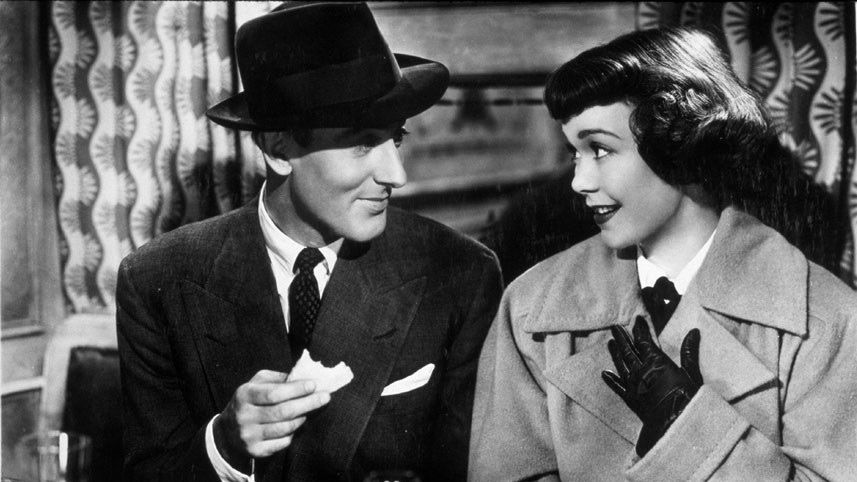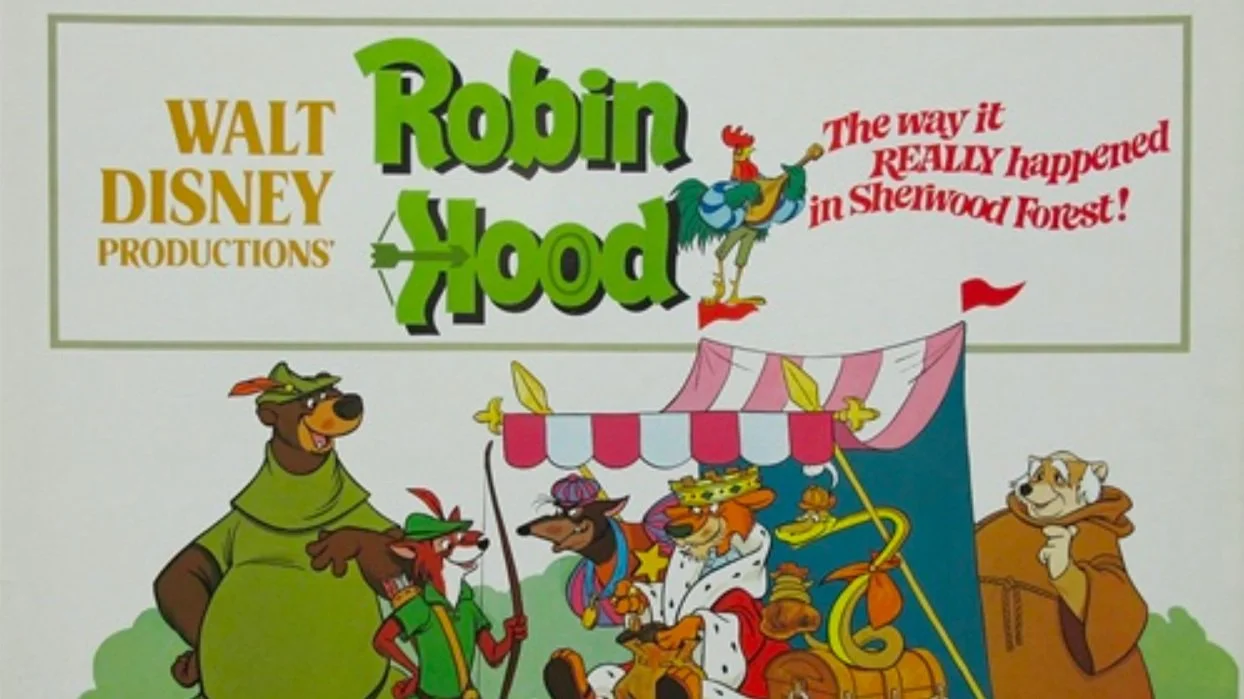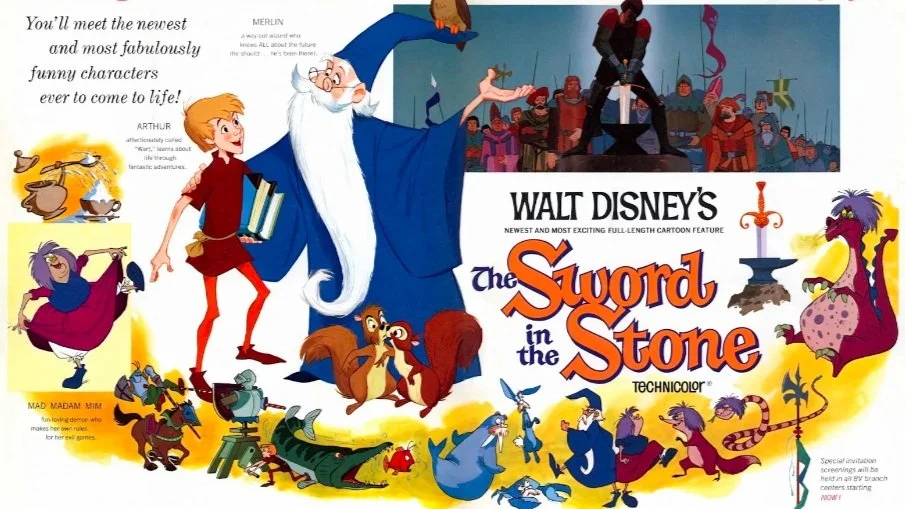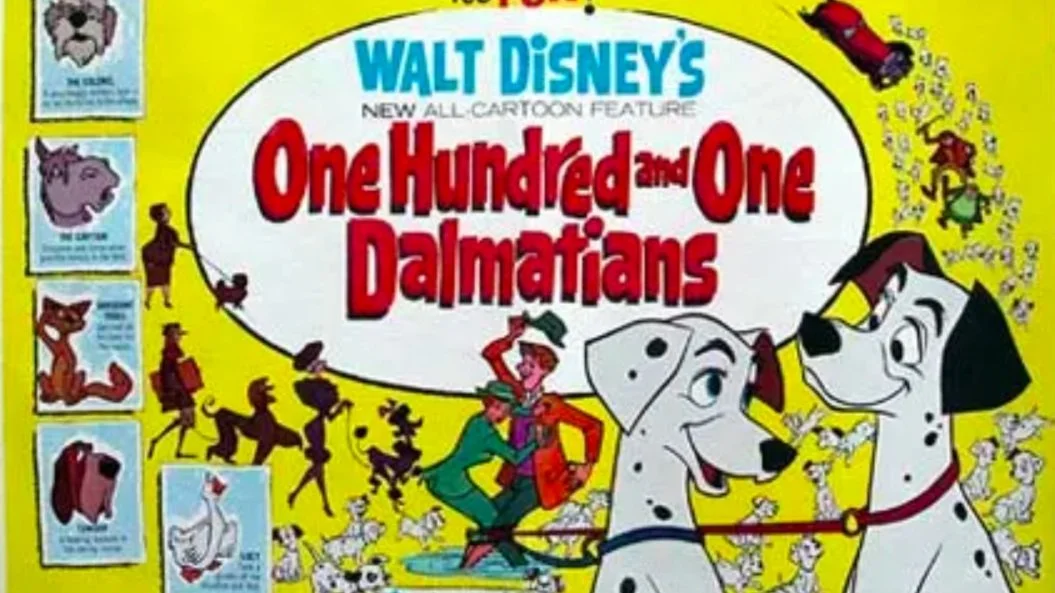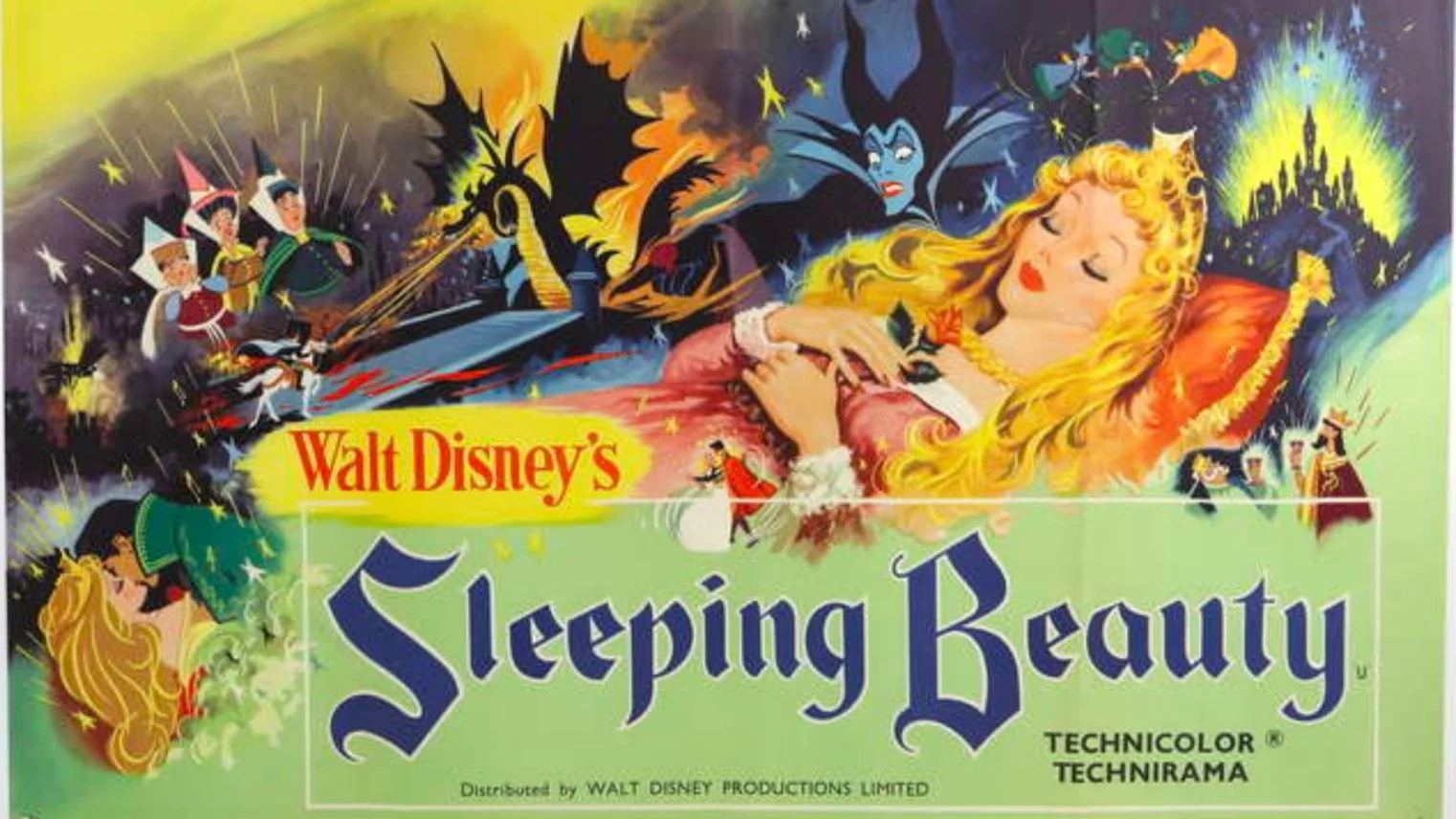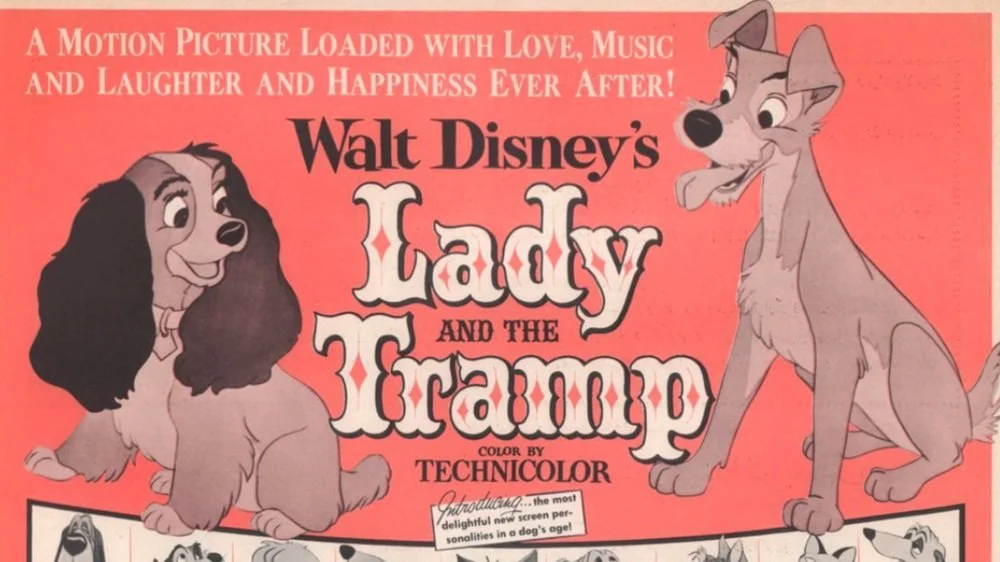Beginner’s Guide to Alfred Hitchcock: Stage Fright (1950)
It’s important for an audience to trust the filmmaker. We have to trust that the filmmaker will guide us through the twists and turns of the story with precision, artistry, and efficiency. So what happens when a director lies to us within the film? Flashbacks in general are supposed to be the truth, letting the audience know what happened to fill in the blanks. In his 1950 mystery film Stage Fright, Alfred Hitchcock breaks that longstanding rule. The film stars Jane Wyman, Marlene Dietrich, Michael Wilding, Richard Todd, and Alistair Sim. Based on the novel Man Running by Selwyn Jepson, the script was adapted by Whitfield Cook and Alma Reville.
Eve (Wyman) is an actress studying at the Royal Academy of Dramatic Arts in London. Her friend Jonathan (Todd) tells her how his secret lover, the theatre star Charlotte (Dietrich) came to him with a bloodstained dress asking for his help after she killed her husband. Eve and her father, the Commodore (Sim), think Charlotte is framing Jonathan. Eve overhears Charlotte’s maid (Kay Walsh) talking about the case in a bar, and soon after becomes friendly with Inspector Smith (Wilding). Eve poses as a reporter and convinces the maid to introduce her to Charlotte as a cousin named Doris so she can investigate from inside Charlotte’s home.
On its own, Stage Fright is a middling mystery. The film is notable for being one of the few films Hitchcock made in England after moving to Hollywood in 1939. (Indeed the director would not shoot in his native country again until the 1970s.) Mysteries like Stage Fright were quite common in England at the time, popularized by Agatha Christie. The story is kind of rote, without much intrigue or danger. As much as I like Jane Wyman, I didn’t find hers or the other actors’ performances compelling or layered, except for Marlene Dietrich as Charlotte.
Hitchcock worked well with the German actress. He allowed for Dietrich to have control over her shots, her lighting, her costumes (by Christian Dior), and her camera angles. Marlene Dietrich was famous for being quite accomplished with the technical aspects of filmmaking, and Hitchcock stepped back so she could take the reins. Hitchcock had some sarcastic remarks about that I’m sure, but Dietrich makes for a classic Hitchcock femme fatale. Dietrich is the only truly commanding actor in the film.
As I mentioned above, Stage Fright is most famous for its opening flashback, where Jonathan relates to Eve his involvement in the murder. The flashback is a lie and it’s the first lie in a story built on people lying to each other. Critics at the time were incensed by this storytelling tactic, feeling they had been cheated. I think if the film were a bit more artfully made, and the narrative were more urgent, this trick would have more impact. The opening of the film, divorced from the rest of the film, is great. Hitchcock throws us into middle of a car chase where two people are being followed by the police. He then immediately transitions to a bizarre flashback starring a new character. It’s quite audacious, but I can see how it doesn’t quite payoff.
Stage Fright doesn’t have the best reputation, but I was hoping it would emerge as a forgotten classic. The main takeaways from the film are the novelty of the false flashback and Marlene Dietrich’s incredible performance. The film does feature one of Hitchcock’s favorite motifs: performances both on and off the stage. Characters play different roles and their parts on the stage reflect their real lives. That theme doesn’t quite go anywhere though. Stage Fright had the potential to be a memorable Hitchcockian thriller with an arresting opening, but the execution leaves something to be desired.


